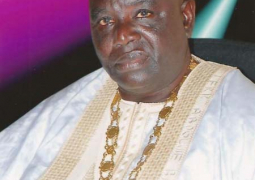The
6th Regional Steering Committee meeting of the West Africa Regional Fisheries
Programme (WARFP) opened yesterday at the Paradise Suites Hotel.
The
two-day convergence was organised within the framework of the WARFP and the
Regional Coordination Unit (RCU), under the supervision of the permanent
secretariat of the Sub-Regional Fisheries Commission (SRFC).
The
overall goal of WARFP is to substantially increase the wealth generated by the
exploitation of targeted fish resources in the participating countries, and
increase the share of this wealth to beneficiary countries.
The
programme, financed by the World Bank, covers nine countries: Cape Verde, The
Gambia, Guinea Bissau, Guinea Conakry, Mauritania, Senegal, Sierra Leone, Ghana
and Liberia.
The
meeting, according to the organisers, was held to discuss and validate the 2016
work plan and budget for regional activities that are implemented by the RCU,
the status of project implementation at both national and regional level, the constraints and
lessons learnt, as well as to make recommendations with a view to fast-tracking
project implementation.
Speaking
at the forum, Asberr Natoumbi Mendy, National Resources Management Specialist
at the World Bank, said the World Bank Mission is out to eradicate poverty and
boost shared prosperity in a sustainable manner.
The
Bank, through the West Africa Regional Fisheries Programme (WARFP) or PRAO in
French, is supporting the governments of the member states of the sub-regional
fisheries commission to put in place sustainable fisheries management systems
that guarantee capture of greater proportion of the wealth generated from the
exploitation of marine resources.
The
West African region is one of the richest fishing zones in the world due to
exceptional climatic and ecological conditions, representing a significant
jurisdictional area and a source of opportunity.
Innovative
fisheries management could deliver smart, sustainable and inclusive growth in
the region, he continued.
According
to Mr Mendy, fisheries have expanded over the past decades without proper
governance or management.
The
first phase of WARFP/PRAO focuses on building robust foundations of fisheries
management and fight against IUU - Illegal, Unreported and Unregulated -
fishing for rebuilding of fisheries resources.
As
the West African fisheries continue to expand, policies are needed to guide the
industry to prevent further resource degradation, rebuild overexploited stocks,
and manage overall fishing effort levels.
The
WARFP/PRAO has for the first time in a fisheries project, introduced an
incentive-based transparency measures for sustainable management of fisheries
with disbursement linked indicators, he further stated.
The
objective is to use DLIs to reduce the risk of rent seeking and to institute a
culture of transparency, he added.
Mr
Mendy indicated that fisheries have huge potential to contribute towards the
eradication of extreme poverty and promotion of shared prosperity - the twin
goals of the World Bank.
He
called upon member countries to collaborate and cooperate in the implementation
of the project by sharing experience, information, success stories,
issues/problems encountered and remedial actions applied.
Mendy
urged the regional coordination unit and the project implementation units to
take stock of what they have achieved or did not achieve, and strategise for
successful implementation of the West Africa regional fisheries project.


